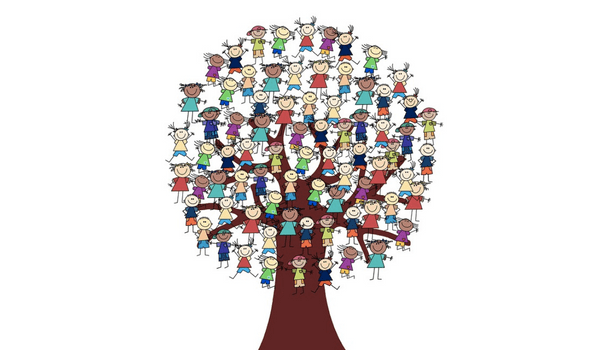How inclusive a team is depends on the leadership. Inclusive leaders take their team members along with them, irrespective of their culture, gender, faith, orientation or belief. They treat all team members as equal, regardless of the nation, region or state they belong to, or their views and thought processes. Leaders are the ones who make people feel valued and included in an organisation.
Humility, empathy and curiosity, self-awareness, adaptability, and being collaborative are some common characters of an inclusive leaders.
But what makes some inclusive leaders stand out and be more successful than the remaining.
The first thing that an inclusive leader needs is very high level of commitment.
“High level of commitment, immense courage and a positive attitude towards inclusion are essential. Those who are genuinely committed to diversity, possess the courage to speak up without hurting others, are able to challenge the status quo and keep looking at ways to improve, make great leaders.”
Jaikrishna B, CHRO, Amara Raja Group
“High level of commitment, immense courage and a positive attitude towards inclusion are essential. Those who are genuinely committed to diversity, possess the courage to speak up without hurting others, are able to challenge the status quo and keep looking at ways to improve, make great leaders,” says Jaikrishna B, CHRO, Amara Raja Group.
Next inclusive leaders should be open to criticism and be willing to accept their mistakes. “They should also be able to rectify their mistakes instead of being on the defensive,” adds Jaikrishna.
Inclusive leaders help create an environment or space that allows others to speak, share and collaborate to be able to go that extra mile.
Amit Das, CHRO, Bennett Coleman & Co. (BCCL), opines, “Leaders have the privilege to recognise voices, spot the great talent and get rid of the weak links. They can create guarded forums that serve as incubation centres that encourage ideation and experimentation.”
“An inclusive leader will always have the intent and ability to amplify stories ‘of and by the people’ of his/her team,” Das shares.
“Not all employees can create success stories all the time, but each story is vital at each stage of an individual’s career. This is something that inclusive leaders understand,” he adds.
“An inclusive leader will always have the intent and ability to amplify stories ‘of and by the people’ of his/her team.”
Amit Das, CHRO, Bennett Coleman & Co. (BCCL)
Das of BCCL also believes the ability to spot winning ideas and facilitate innovation is another important traits of a successful inclusive leader.
The success of an inclusive leader will also depend on their political savviness and their professional diplomacy skills.
“They should be able to relate to people at all levels, internally and externally,” opines Jaikrishna. They should possess the ability to respect not just those above them, but those around them. In other words, 360-degree management, involving all stakeholders is a must-have trait.
Some inclusive leaders are also able to accept and embrace divergent views and mind sets.
“They never let their teams feel exclusive in any way,” says Mahipal Nair, VP and head of HR, Trellix.
“By allowing for healthy conflict to build a shared ,or in some cases, common understanding, inclusive leaders constantly practice equity, fairness and openness, in addition to immense patience and perseverance.”
Mahipal Nair, VP and head of HR, Trellix
He cites the example of one of his favourite teachers, who was also the Pro VC of the university. “His class was a master class in inclusive approach,” he recalls fondly. “No matter how divergent or how difficult the views expressed by students, he would listen to each one carefully, and even rephrase what they said, if required , for others to understand better,” adds Nair. “He ensured that all the students in the class were brought to the same level of understanding. His patience, compassion and care, irrespective of the background of students made him different,” explains Nair.
In their eagerness to include everyone in the organisation, such leaders always encourage a healthy debate and dialogue. As Nair puts it, “Allowing for healthy conflict to build a shared ,or in some cases, common understanding, they constantly practice equity, fairness and openness, in addition to immense patience and perseverance.”
While some may believe that one trait may be more important than the others when it comes to inclusive leaders, Jaikrishna B says, “Every inclusive leader (MM Murugappan, R Kannan, Joseph Mani, Jayadev Galla and a family friend Sellvi Sugumaran) I have met, has almost all the traits discussed here, or most of them. It is just that the strength of the trait varies from one leader to another.”
With so many traits to consider, it may be difficult to identify such leaders quickly. However, over time, these qualities rise above everything else and get highlighted, making it easy to spot such leaders.







1 Comment
Great article.